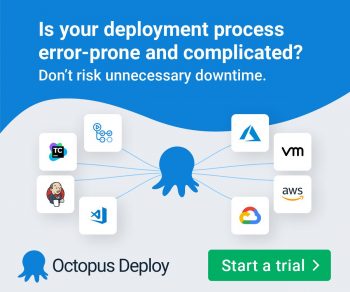A visit to a car dealership has traditionally served as the first touchpoint of the customer journey for automotive brands. But not anymore.
With all the turmoil over the past few years, consumer habits in the automotive industry have significantly changed. One thing is certain: the new auto consumer behavior is sticking. Engaging vehicle buyers now starts online, not in the car dealerships.
This shift in consumer behavior unlocks new business opportunities auto brands can’t miss out on.
And this is where automotive chatbots can make a real difference.
Why? Because a marketing chatbot enables meaningful, two-way conversations. You can take that more personalized, consultative approach you used to have in dealerships and bring it online.
Automotive chatbots provide the best of both worlds. They help you build personal connections with your customers where you get information that matters to personalize their experience. You can, for instance, provide a personal tour of the car and its features based on their preferences. Or offer a virtual test drive. All on digital channels where your customers already are.
Here is how vehicle brands can leverage automotive chatbots to overcome the obstacles posed by industry changes and bring the car dealership experience online.
Why Automotive Consumer Behavior Has Drastically Changed
COVID-19 has created significant challenges for the auto industry. Manufacturing was shut down. Dealerships closed their doors. Auto marketers needed to reimagine their customer journey and shift to digital marketing.
The pandemic has also changed consumer habits. Vehicle consumers now increasingly use online channels to discover, research, test, and even purchase new cars. In fact, 53% decide on new vehicles online.
Buying cars online or evaluating them before visiting a dealership has become the new norm in the industry.
Conversational automotive chatbots will allow your auto brands to bring the experience of a dealership online. Powered by conversational AI, interacting with automotive chatbots feels like talking to human-like digital assistants. Prospects can learn about new vehicle models and features based on their preferences and driving behavior. They can customize their dream car. Or even book a virtual test drive. This is how the dealership experience goes online.
Below, we’ll walk you through how automotive brands can benefit from conversational chatbots by showing valuable marketing use cases.
Automotive Chatbots Enable More Qualified Leads
These days, auto brands must engage consumers on their preferred digital channels. But fierce competition for attention and increasing ad fatigue challenge marketers to find new ways to convert their target audience.
Ad fatigue is real. Customer acquisition costs are rising. Attention spans and conversion rates are getting lower and lower. There is probably a big gap between the conversion rate you want to achieve and the one you actually generate.
What customers want now is instant, personalized interactions. And this is exactly what automotive chatbots are capable of as they deliver a 1:1 personalized experience.
The main goal of auto brands is to increase lead generation, encouraging prospects to book a test drive on their website. A conversational ad campaign – which directs prospects into a chat experience – is able to address car buyers’ preconceptions on electric vehicles and highlight key features of the models. The conversational assistant can adapt to each car buyer’s preferences in real time to personalize product education and drive lead acquisition for the new vehicle.
Interested in how, Renault, a major auto brand achieved a 36% lower cost per micro-conversion with a marketing chatbot promoting electric vehicles? Read the stories here!
Offer Personalized Guided Shopping to Overcome the Messy Middle of the Purchase Journey
According to a recent study conducted by Facebook, 78% of new car buyers are comfortable using social media when deciding on a new vehicle purchase.
But since vehicle purchase is a high-value, big decision, they often need help to guide them through the journey. Marketing automotive chatbots recommend products based on personal needs and preferences while delighting customers with a fun shopping experience.
This offer a solution to a major challenge for automotive marketers. The “messy middle” of the digital purchase journey. A guided shopping journey can accelerate consideration phases and also bring the journey into a single channel.
Why? Because customers can learn more about vehicles their own terms. At the same time, marketers can collect deeper insights into every stage of the buying journey. They also benefit from a channel to re-engage their prospects one to one.
A car-finding chatbot allows drivers to customize their dream car and take it for a virtual test drive in this interactive buyer journey. Thanks to the guided shopping tour, customers can find their ideal vehicle in fewer steps. This is how auto brands can drive traffic, build their audience, and capture leads for new car sales.
Automotive Chatbots to Drive AI-Powered, Human-Like Engagement
With the rise of social messaging, consumers expect fast, convenient, and effortless communications with brand. Keeping up with inquiries and offering 24/7 support is a major challenge for businesses.
This is where automotive chatbots come into the picture. But chatbots are often scripted and therefore doesn’t feel human. If only they could have meaningful conversations with prospects. Well, they can, if conversational AI and well-designed guided shopping journeys fuel them.
A conversational digital assistant can introduce vehicle models and customize customer journeys using real-time customer insights gathered about their preferences.
Thanks to AI technology, bots are able to test, learn and optimize interaction in real time to create meaningful conversations.
But chatbots have a bad reputation for repetitive conversations and therefore the question arises whether customers like interacting with chatbots. The truth is that consumers want their needs met while messaging – bot or not.
According to our latest research on the state of social conversational commerce in 2022, as long as they’re able to get what they need, both EU respondents (48%) and US respondents (51.7%) don’t care if they message with a bot or a human.
Here’s a pro tip: how do you know your digital assistant really feels human? One great indicator is that customers spend more than one minute on average in the conversation interacting with the bot.
Valuable Insights Straight from Customers, Not Third Parties
As the word is going privacy-first, relying on third-party data is not an option anymore. Instead, brands need to build direct relationships with their audience by investing in first-party data or declared data.
Declared data is information shared by customers in a direct interaction between the customer and the brand, rather than purchased from or accessed through a third party.
Conversational marketing chatbots are ideal to collect declared data as they enable two-way, private interactions, where consumers are encouraged to share valuable zero-party data with brands. The bots learn preferences in real-time conversations, and these insights can be later used to better target prospects with personalized offers.
By leveraging declared data, marketing chatbots can effectively retarget customers and provide them the right offer for a vehicle on their preferred channel, based on their preference and budget. Recurring notifications, for example, provides a brand new re-engagement channel, enabling brands to send regular updates to opted in customers about the topics they’re interested in.
Wrap Up
Automotive chatbots unlock great opportunities to create meaningful, personalized, two-way conversations with auto buyers.
Messaging beats ad fatigue and drive lead generation. With online guided shopping, customers can find their ideal vehicles and take action in fewer steps. This accelerates the consideration phases and ultimately increases sales.
AI-driven chatbots create human-like experiences, encouraging customers to interact with the bot while sharing data.
This data gets more and more valuable as the future of marketing is all about investing in first-party and zero-party data collected straight from customers.

















